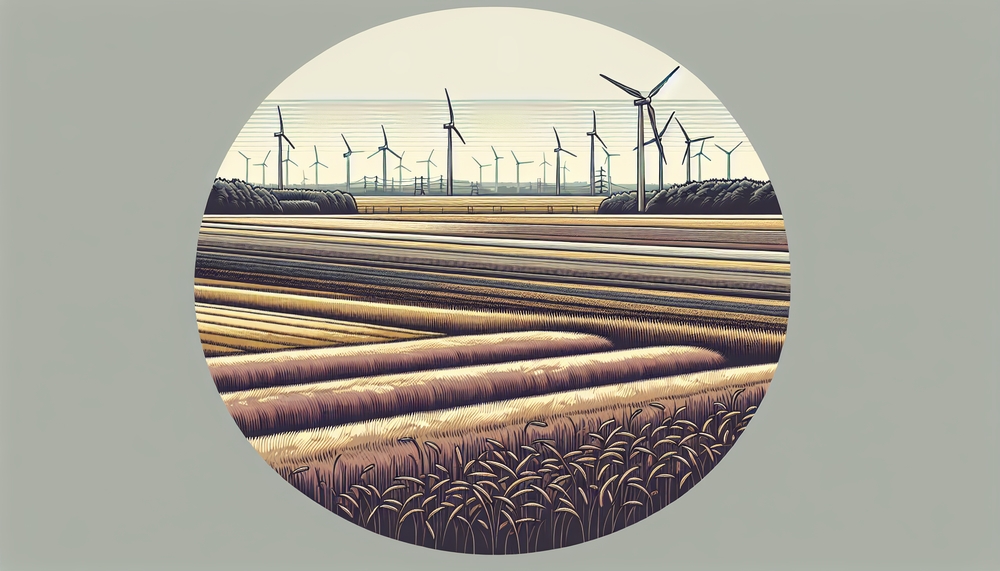Published
- 3 min read
Germany's Economic Malaise: A Wake-Up Call for Europe's Engine

Germany’s Economic Challenges: A Critical Juncture for Europe
For decades, Germany has been hailed as the economic powerhouse of Europe. Boasting the largest economy in the European Union (EU), Germany has played a pivotal role in shaping the continent’s economic and political landscapes. However, recent years have witnessed a troubling shift. Germany’s economy, which once acted as a robust engine driving the EU forward, is now beleaguered with issues that could impede Europe’s overall growth.
Political Uncertainty Ahead of Key Elections
Germany is just weeks away from a pivotal federal election slated for February 23. The political landscape remains fragmented, with the center-right Christian Democratic Union (CDU) leading the polls by a narrow margin. With complexities surrounding potential coalition formations, including the widely discussed “Kenya coalition” comprised of CDU/CSU, SPD, and the Greens, the necessity for stable leadership has never been more crucial.
The far-right Alternative for Germany (AfD) garners significant attention, coming in second place in the polls. Despite this, an alliance with established parties remains unlikely, solidifying a complex post-election coalition negotiation process. Particularly, Friedrich Merz, a prominent figure returning to lead the CDU, presents market-centric economic policies and conservative stances that may significantly shape Germany’s trajectory.
Economic Stagnation and Structural Flaws
The once-vibrant German economy is now sluggish. The European Commission forecasts Germany’s economic growth at a paltry 0.7% by 2025, making it the slowest-growing economy within the EU. Several challenges have been identified as the root of this stagnation. Chief among them are high energy costs, insufficient public investment, and an overreliance on exports, which leave Germany vulnerable to global economic shifts.
Amidst a backdrop of economic lethargy, Germany’s industrial base has seen a tangible decline, with output projected to continue falling. The relocation of production facilities by major German companies to more competitive markets is indicative of an eroding industrial edge. Countries like Poland and Hungary exhibit dynamic growth and have become increasingly attractive due to lower costs and higher industrial outputs.
Addressing the Ageing Population and Labor Market
Germany’s aging population exacerbates workforce challenges. With a shrinking pool of labor, industries face the dual pressures of rising costs and the necessity to automate. While the unemployment rate remains low, anticipated industrial layoffs could pose serious economic and social challenges.
Energy Policies and Global Competition
Germany’s energy prices, exacerbated by volatile gas markets, continue to undermine its international competitiveness. Whereas Central and Eastern European countries thrive with lower energy costs and robust investments, Germany lags behind when it comes to pivotal reforms.
Furthermore, Chinese automakers pose significant threats to Germany’s automotive sector. Companies like BYD and NIO are making decisive inroads into the European EV market, outpacing German manufacturers who struggle with innovation and higher production costs.
What’s Next for Germany and Europe?
The next German chancellor faces a formidable task. As Europe stands on uncertain economic footing, revitalizing Germany’s economy through comprehensive public investments and policy reforms is imperative. Addressing regulatory barriers and fostering a business environment conducive to innovation will be key to reigniting Germany’s economic dynamism.
Failure to implement immediate reforms could resonate across the continent, leading to heightened economic disparities within the EU and potentially bolstering Euroskeptic sentiment. Conversely, strong leadership and decisive interventions could revitalize Germany’s economic stature and reaffirm its leadership role within the European project.
The coming months are pivotal for Germany and, indeed, for Europe. As the nation approaches its federal elections, the policies set forth by the incoming chancellor will determine the stability and unity of the EU for years to come, highlighting the profound statement that when Germany sneezes, Europe truly catches a cold.
